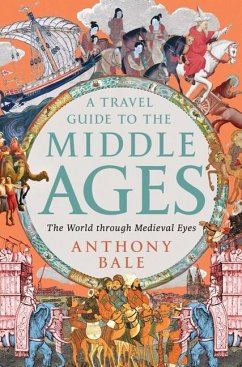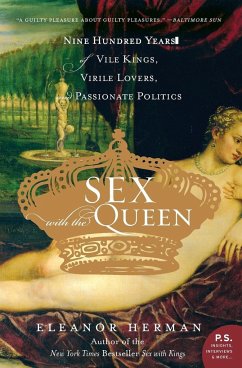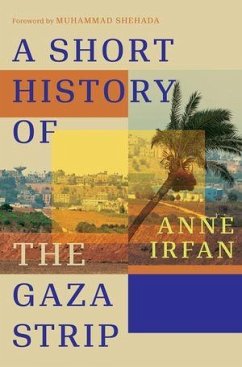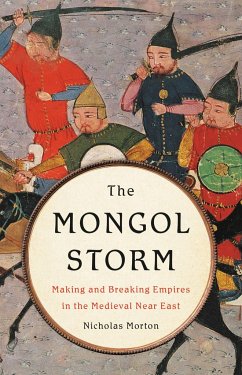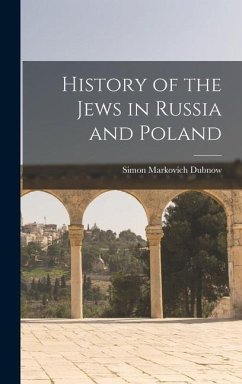Nicht lieferbar
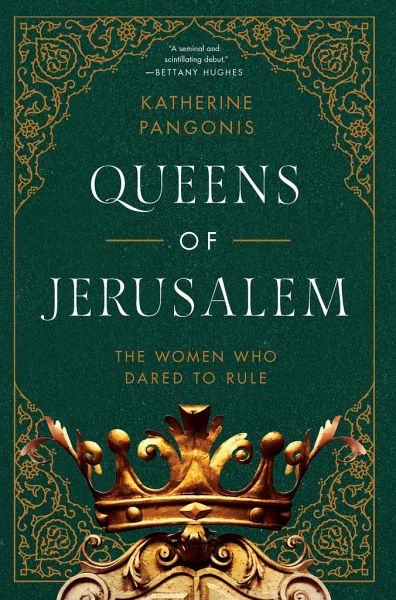
Queens of Jerusalem
The Women Who Dared to Rule
Versandkostenfrei!
Nicht lieferbar
Weitere Ausgaben:
"In 1187 Jerusalem, the holy city held by Christians for four generations and the prize of the First Crusade, fell to Saladin after a short siege. The Christians within were outnumbered ten to one, and yet the city held out long enough for favourable terms to be negotiated. The population was spared. The city was defended by a woman: Sibylla, Queen of Jerusalem. The Holy City had been lost, but the Christians maintained their footholds in the Middle East for another century. This region became known in Europe simply as Outremer, 'overseas'. Steeped in biblical wonder and the glamour of exotici...
"In 1187 Jerusalem, the holy city held by Christians for four generations and the prize of the First Crusade, fell to Saladin after a short siege. The Christians within were outnumbered ten to one, and yet the city held out long enough for favourable terms to be negotiated. The population was spared. The city was defended by a woman: Sibylla, Queen of Jerusalem. The Holy City had been lost, but the Christians maintained their footholds in the Middle East for another century. This region became known in Europe simply as Outremer, 'overseas'. Steeped in biblical wonder and the glamour of exoticism, Outremer has inspired generations of historians from antiquity to the modern day. Missing from both medieval and modern histories of the Outremer is the voice of the women of the kingdom. The stories of the queens and princesses who ruled and rebelled in this volatile region have all but been written out of the historical record. Even the women who carried water on to the battlefields, and were struck down with arrows as they toiled beneath the walls of besieged cities during the First Crusade, have had their roles omitted from the majority of the chronicles. The queens who defended their cities against Muslim besiegers, negotiated with Saladin, and ruled with 'unusual wisdom' similarly have seen their deeds overlooked. William of Tyre, the key historian for this period, gives a sympathetic portrayal of just one queen, and writes off the rest as manipulative harridans, or barely worth the words. He devotes the fewest possible pages in his hefty chronicle to the deeds of women, when indeed women played a key role in both the crusades themselves and the foundation of the Kingdom of Jerusalem. There is a trend for male chroniclers of the crusades to concern themselves with the deeds of men, and this has carried over to much modern scholarship too. Kate Lombard's book intends to address the imbalance by shedding light on the deeds of some of the most daring, devious and devoted women that history has witnessed. She explores the lives of the female rulers of Outremer from the year 1095 to the fall of Jerusalem in 1187. The primary subjects are Morphia of Melitene, Melisende of Jerusalem, her rebellious sister Alice, her shrewd daughter Constance of Antioch and finally Sibylla of Jerusalem and her domineering mother Agnes of Courtenay, the women who presided over the collapse of the kingdom. Eleanor of Aquitaine is also a key figure, owing to her journey east with the Second Crusade and the love triangle that developed between her, Constance and Constance's husband Raymond of Antioch (Eleanor's own uncle). Queens of Jerusalem explores the role women played in the governing of the Middle East during periods of intense instability, and how they persevered to rule and seize greater power for themselves when the opportunity presented itself."--





